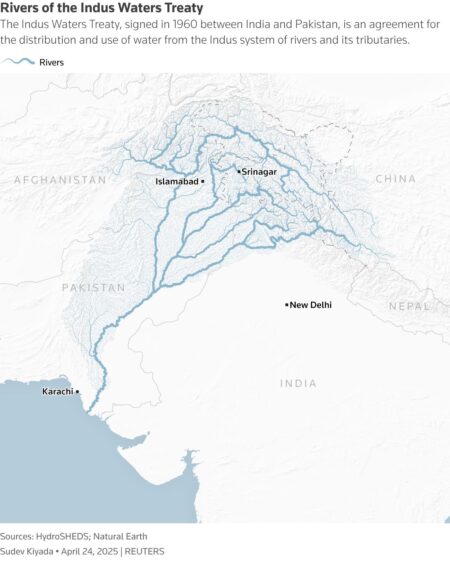China’s $167 billion mega-dam project in Tibet has ignited fierce debate, sparking urgent concerns over environmental harm, regional water security, and rising geopolitical tensions with downstream nations that rely on the crucial Himalayan rivers
Browsing: water resources
Pakistan’s Foreign Minister Bilawal Bhutto delivered a powerful warning to India, demanding a fair and equitable sharing of the Indus River waters. He warned that should India refuse to cooperate, Pakistan may be compelled to take full control over all six rivers covered by the Indus Waters Treaty
India is weighing a bold and contentious strategy to cut back on Pakistan’s water supply via an ambitious new project on the Indus River. If this plan moves forward, it could significantly heighten tensions between the two nations, which are already grappling with deep-rooted conflicts over vital water resources.
In the aftermath of the recent Kashmir attack, India has made a bold move by downgrading its diplomatic relations with Pakistan. This decisive action includes the suspension of a vital water-sharing treaty, further heightening tensions between the two nations and shaking the foundations of regional stability.
The Indus Waters Treaty, established in 1960, serves as a crucial framework for managing the river waters shared by India and Pakistan. This landmark agreement not only allocates the waters of the Indus and its tributaries but also aims to foster cooperation between the two nations. However, it frequently finds itself at the center of tensions in their bilateral relations.
Recent studies reveal that Brazil’s rivers are leaking significant amounts of carbon dioxide, challenging our understanding of carbon cycles. This unexpected finding could have profound implications for climate change efforts and global carbon modeling.





